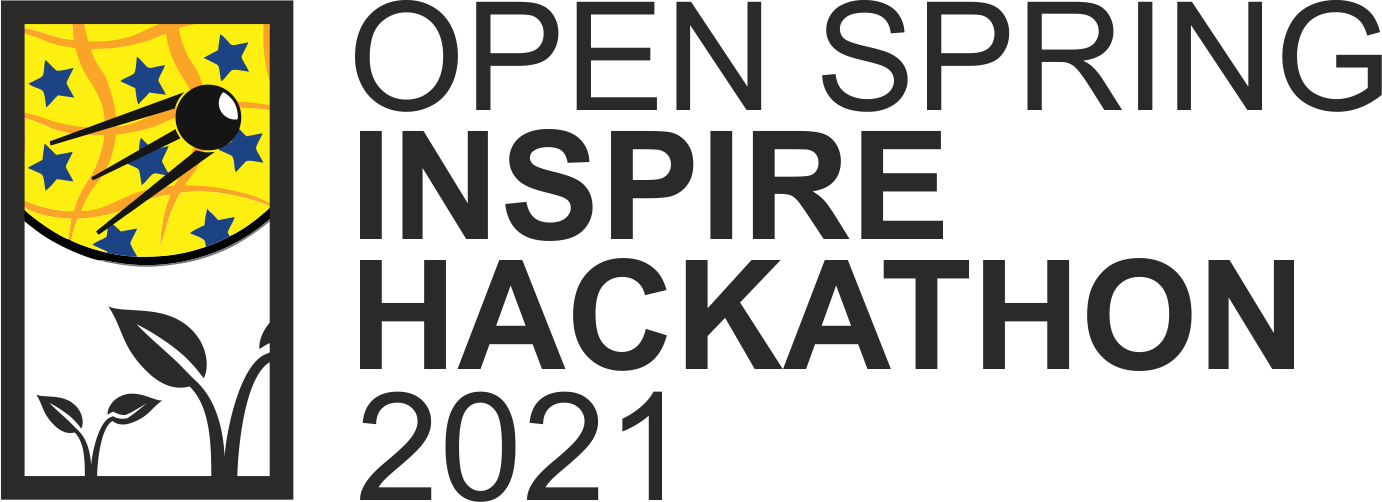The Open Spring INSPIRE Hackathon 2021, organized by Plan4all association in cooperation with organizations such as WirelessInfo or the Czech Center for Science and Society, will be 18. INSPIRE Hackathon and already the fourth one that will be organized fully virtually with the respect to the current situation. The uniqueness of INSPIRE Hackathons lies in the fact that it is not just a multi-day event, but a comprehensive and long-term process, in which the emphasis is on using the results and knowledge gained from previous INSPIRE Hackathons.
The Open Spring INSPIRE hackathon 2021 will be focused on developments and innovations in agriculture, the environment, transport, tourism, geospatial applications or remote sensing and GNSS.
During the months of April and May, when the hackathon will take place, we offer you an unique opportunity to try out our new technologies and infrastructures, which will be open to all developers. At the same time, it will be possible to apply and integrate technologies into projects at your own discretion and experience. INSPIRE Hackathon opens up opportunities for cooperation in the development of various solutions with participants from all over the world, and at the same time offers everyone the enrichment of their own experience.
For each INSPIRE Hackathon, several challenges are defined in advance. Hackathon participants seek solutions for the challenges under the guidance of one or more mentors. The task of the mentors is to coordinate the team work within the challenge, ensure communication in the team and ensure that the team’s results are presented at the final virtual event, which closes the entire hackathon. Progress reports of challenges and ongoing information related to the hackathon will be published in Czech on the Open Spring website and also in English on the Plan4all website. All results will then be published and integrated on the portals www.agrihub.cz and hub.plan4all.eu, which serve as a technological, presentation and knowledge base.
CALL FOR CHALLENGE PROPOSALS
We are already open to your ideas and suggestions that we will happily include among the challenges and goals of this hackathon. In case of an interesting idea for the solution of a certain problem, we can also offer you further development or commercial deployment of your solution even after the end of the hackathon.
Your challenge proposals should include:
- The title of the challenge
- Name of mentor – You can also be a mentor!
- Abstract (maximum 250 characters)
- Short description of the call / issue (maximum 250 characters)
- Extended description of the call / issue (approx. 1800 characters)
- Category (eg GIS, sensors, application development…)
- Requirements for team members: (eg backend development, frontend, UX specialist, graphic designer, GIS specialist, agronomist, traffic engineer, state administration…)
- The aim of the challenge
The call for challenge proposals for the Open Spring INSPIRE Hackathon is open until the end of March 2021! Please send your ideas to hana.kubickova@plan4all.eu. We will continuously publish the proposals you have sent on the Open Spring and Plan4all websites.
PARTICIPATION & REGISTRATION
There are two virtual phases of this hackathon. The first phase of the INSPIRE Hackathon 2021 starts with actual hacking. Several challenges and their mentors will be defined and anyone can join the challenge (1st April). Virtual meetings, webinars and other means of communication will be used to advance the defined challenges. The mentor of each challenge will be responsible for communicating with the team members that join this challenge.
From 22nd March, we will gradually announce the challenges to give you the oportunity to think about which challenges you would like to take part in. The registration for this fully virtual hackathon starts on 1st April!
All the teams that participate in the hackathon will be invited to present their project results during the final virtual event of the hacakthon which is a virtual workshop that will be organised at the end of May. The date is to be confirmed. The teams will be asked to prepare a presentation showing their hackathon project results.
The registration for the challenges is open! Check the table below, choose the challenge and register for the hackathon HERE.
KICK – OFF WEBINAR
LIST OF CHALLENGES
| CHALLENGE | PROJECT TITLE & DESCRIPTION | MENTOR |
|---|---|---|
| 1 | How to use and improve OLU 2.0.0 The aim of the Challenge is to verify and test the possibility of using the geographical database OLU 2.0.0 for various areas of human activity - spatial planning, modeling, visualization, but also in commercial applications - real estate, investment evaluation, etc. The aim is to support the use of OLU in various areas gather data for further development of the OLU database. | Karel Charvát, Kristýna Čerbová |
| 2 | Regional Atractiveness This challenge’s primary goals are to explore and develop different forms of simple, understandable, and tempting attractive communication of regional attractiveness assessment. The challenge results will help identify and visualise similarities and differences between various regions based on statistical data. The team should consider, test and experiment with multiple approaches that include but are not limited to index calculation, clustering or machine learning methods. | Karel Charvát, Otakar Čerba |
| 3 | Analysis of Drought Conditions for Selected Use-Cases Drought is a natural hazard that has significant impacts on the environment, society, and economy. In this challenge we will apply various drought indices to investigate the occurrence of drought conditions for several STARGATE use-cases in Europe. The aim of the challenge is to assess drought risk by applying drought indices to weather simulation models and earth observation data for selected use-cases. | Amit Kirschenbaum |
| 4 | Analytical map of traffic accidents in Czechia Set up an analytical map of traffic accidents in Czechia, taking advantage of the GLayer engine provided by InnoConnect. | Frantisek Kolovsky, Jiri Bouchal |
| 5 | SmartAfriHub III - African Agricultural Water Security The goal is to continue building the African Community to support SmartFarming in Africa. | Tuula Löytty, Markéta Kollerová, Karel Charvát |
| 6 | Analysis of Sentinel 2 and Sentinel 1 time series for the purpose of Agriculture This challenge aims at following: Comparison of different indices including developing web based environment for data comparison Time series crop classification testing different possibilities like transfering classification form one season to other or from one region to the other Analysis of dynamism of different indices in the field and comparison with other data like meteorological and climatic data Comparison of different phenology status inside of farm Comparison of phenology status of single crops between seasons Updating Land Use maps | Herman Snevajs, Iva Batrlova |
| 7 | Interactive collaborative data capturing at scale - technology and business models A MapWhiteboard is a technology that allows several users to work collaboratively “in” the same map, the way people do with documents in Google Docs or Office 365. The challenge for the hackathon is two-fold: The technical challenge for developers is to ensure the scalability of the current proof-of-concept to handle large-scale real-world user loads. To date, no benchmark has been established to determine the capacity and hardware requirements for the challenge. The business challenge for those who wish to transform tech into added value for society: How to capitalize on whiteboard technology For government, academia, business, individuals How can it be made into a cross-platform enabler (serve different tech silos, providers) What are the “killer” use-cases and applications for this technology How can this be offered as a service, licensing and IPR concerns - open or proprietary, on-premise, decentralized or SaaS | Runar Bergheim, Karel Charvát, Eliška Janošíková |
| 8 | AgroInfo Application Design of AgroInfo - (web-based) application gathering information from various sources into an integrated, easy to interpret environment. The outcome of the challenge should be a detailed analysis of needs, the definition of use-cases, and app wireframes that could be used as a basis for developing the web application. | Karel Jedlička, Frantisek Zadrazil, Pavel Hajek, Heřman Šnevajs, Jirka Valeš, Tomáš Andrš |
| 9 | Agrihub Slovakia Let's make Slovak agriculture smarter, sustainable and competitive. The aim of the challenge is to build a Slovak Agricultural Innovation Hub. | Petr Uhlíř, Hana Kubíčková, Radoslav Delina |
| 10 | Evaluation of OSM 4 purposes of Traffic Modelling The goal of our challenge is to evaluate the suitability of the OpenStreetMap street network for a traffic model creation, focusing on the quality of attributes (prohibited turns and road capacity mainly) using GEH Statistics, compared to available traffic measurements. | Karel Jedlička, Daniel Beran, Jan Martolos |
| 11 | From Smart Points of Interest towards sustainable Points of Interest The goal of the challenge is to create a robust, easily maintainable pipeline for OSM and other data resources to SPOI transformation and to find a sustainable business model for SPOI spoject. We will look at new methods of building SPOI, but the main focus will be on areas where SPOI can be used and how to integrate SPOI with other data and provide custom analysis for different stakeholders groups. We will look on synergis with such data sets like Open Land Use and other data sources. | Jan Macura, (Stein) Runar Bergheim |
CAPACITY BUILDING
An important component of the INSPIRE hackathon concept is the capacity building activities. It is provided in webinars organized by each of the challenges. In addition to a short introduction to the INSPIRE hackathon concept and the specific challenge, experts are invited to speak about topics covered within the challenge. This way transfer of knowledge (often across disciplines) go side by side with efficient management of the challenge work. The webinars will be announced within a couple of weeks after the hackathon is kicked-off.
TIMELINE
- 21st March 2021 – deadline for The Call for challenge proposals
- 22nd – 31st March 2021 – challenge kick-off
- 1st April – start of the hackathon, registration opens
- 31st May – end of the virtual hacking stage
- 7th June – final reports on results needs to be delivered to hana.kubickova@plan4all.eu
- TBD (mid-June) – final virtual presentation of the hackathon results
The Open Spring INSPIRE Hackathon is supported by the following organisations and projects:
 Plan4all (https://www.plan4all.eu/) – Plan4all is a non-profit association sustaining and further enhancing the results of multiple research and innovation projects. It aggregates large open datasets related to planning activities in different specialisms areas transport, spatial and city planning, environment and tourism. Plan4all makes sure that open data are easily accessible for reuse, data are maintained and their quality is improved.
Plan4all (https://www.plan4all.eu/) – Plan4all is a non-profit association sustaining and further enhancing the results of multiple research and innovation projects. It aggregates large open datasets related to planning activities in different specialisms areas transport, spatial and city planning, environment and tourism. Plan4all makes sure that open data are easily accessible for reuse, data are maintained and their quality is improved.
 CCSS (http://www.ccss.cz/en/) is a research association established by legal entities, which support research cooperation among Universities, public and private sectors. Activities of CCSS are oriented in a wide range of thematic areas implemented in International and European research projects related to environment, agriculture, planning, GI, ICT development, real estate and planning. Activities also extend to the field of information technology, spatial planning, advisory, education, sustainable development and the development of applications in the field of planning, smart cities, forestry, agriculture, agro-tourism, and farming.
CCSS (http://www.ccss.cz/en/) is a research association established by legal entities, which support research cooperation among Universities, public and private sectors. Activities of CCSS are oriented in a wide range of thematic areas implemented in International and European research projects related to environment, agriculture, planning, GI, ICT development, real estate and planning. Activities also extend to the field of information technology, spatial planning, advisory, education, sustainable development and the development of applications in the field of planning, smart cities, forestry, agriculture, agro-tourism, and farming.
 Commission on Maps and the Internet (https://internet.icaci.org/) The Maps and the Internet Commission promotes cartographic research and development in order to solve scientific and applied problems related to web-based cartography. The Commission’s purpose is to enhance cartographic education related to the Internet. In addition, the Commission promotes professional and technical standards for maps available through the Internet.
Commission on Maps and the Internet (https://internet.icaci.org/) The Maps and the Internet Commission promotes cartographic research and development in order to solve scientific and applied problems related to web-based cartography. The Commission’s purpose is to enhance cartographic education related to the Internet. In addition, the Commission promotes professional and technical standards for maps available through the Internet.
 Founded 2016, InnoConnect (http://innoconnect.net/)is an award-winning data visualisation & analytics startup based in Pilsen, Czechia and Flanders, Belgium. InnoConnect is especially strong in visual analytics of big geographic data. Solutions built with InnoConnect’s products range from smart mobility to criminality prevention analytical maps, visualisation of statistical data, or geomarketing maps. Any spatio-temporal data (i.e. related to space and time) can be used with InnoConnect’s analytical maps. More complex your data is, the more you will benefit from the powerful filtering functionalities.
Founded 2016, InnoConnect (http://innoconnect.net/)is an award-winning data visualisation & analytics startup based in Pilsen, Czechia and Flanders, Belgium. InnoConnect is especially strong in visual analytics of big geographic data. Solutions built with InnoConnect’s products range from smart mobility to criminality prevention analytical maps, visualisation of statistical data, or geomarketing maps. Any spatio-temporal data (i.e. related to space and time) can be used with InnoConnect’s analytical maps. More complex your data is, the more you will benefit from the powerful filtering functionalities.
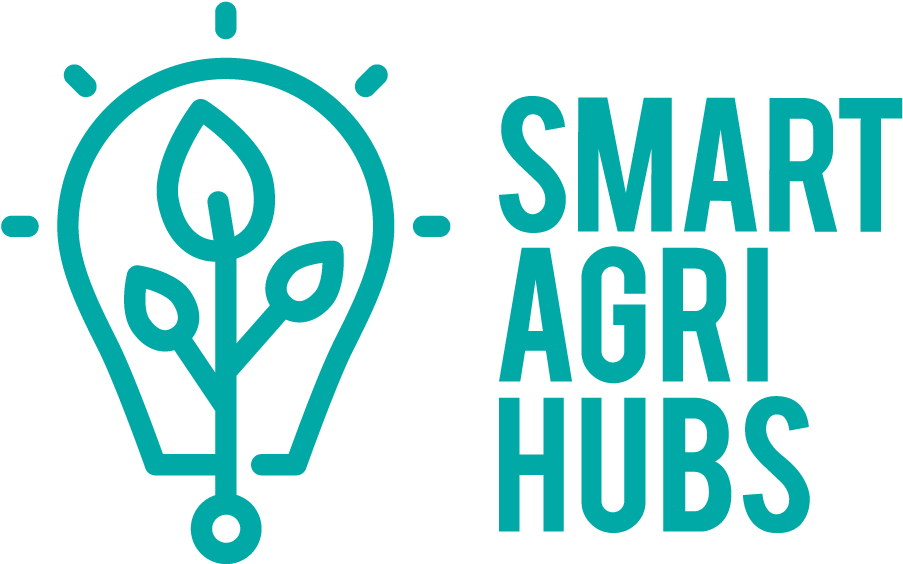 SmartAgriHubs(https://smartagrihubs.eu/) The project aims to realise the digitisation of European agriculture by fostering an agricultural innovation ecosystem dedicated to excellence, sustainability and success. To this end, SmartAgriHubs employs a multi-stakeholder approach and covers a broad value-chain network across all EU member states. The consortium includes a diverse network of start-ups, SMEs, business and service providers, technology experts and end-users. The end-users form the core of the project and are the driving force behind digital transformation. The development and adoption of digital solutions is achieved by a tight ecosystem of 140 Digital Innovation Hubs embedded within 9 Regional Clusters, which are led by organisations that are closely involved in regional digitisation initiatives and funds.
SmartAgriHubs(https://smartagrihubs.eu/) The project aims to realise the digitisation of European agriculture by fostering an agricultural innovation ecosystem dedicated to excellence, sustainability and success. To this end, SmartAgriHubs employs a multi-stakeholder approach and covers a broad value-chain network across all EU member states. The consortium includes a diverse network of start-ups, SMEs, business and service providers, technology experts and end-users. The end-users form the core of the project and are the driving force behind digital transformation. The development and adoption of digital solutions is achieved by a tight ecosystem of 140 Digital Innovation Hubs embedded within 9 Regional Clusters, which are led by organisations that are closely involved in regional digitisation initiatives and funds.
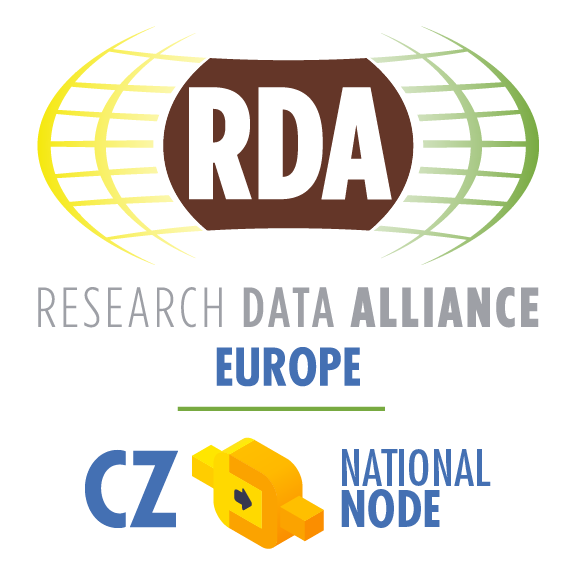 RDA-CZ Node (https://www.rd-alliance.org/groups/rda-czech-republic) – National Node Services and Activities in support of the “RDA Europe 4.0” Project. The objective of RDA Europe 4.0 is to become the centrepiece for an EU Open Science Strategy through a consolidated European network of National Nodes, bringing forward an RDA legacy in Europe, providing skilled, voluntary resources from the EU investment to address DSM issues, also through an open cascading grant process. The ambitious 27-month project comprises 5 Partners and a number of Third Parties (the National Nodes) all of which are domain skilled, complementary institutions and organisations that have been drivers of RDA in Europe since its launch in 2013.
RDA-CZ Node (https://www.rd-alliance.org/groups/rda-czech-republic) – National Node Services and Activities in support of the “RDA Europe 4.0” Project. The objective of RDA Europe 4.0 is to become the centrepiece for an EU Open Science Strategy through a consolidated European network of National Nodes, bringing forward an RDA legacy in Europe, providing skilled, voluntary resources from the EU investment to address DSM issues, also through an open cascading grant process. The ambitious 27-month project comprises 5 Partners and a number of Third Parties (the National Nodes) all of which are domain skilled, complementary institutions and organisations that have been drivers of RDA in Europe since its launch in 2013.
 LIVERUR (https://liverur.eu/) The LIVERUR project identifies Living Labs as innovative business models that are currently being developed in rural areas, and will conduct socio-economic analyzes to identify, describe and compare the differences between the new approach of Living Lab and more entrepreneurial traditional approaches (mass production, development of prices, optimizing cost structures with companies, rationalization).
LIVERUR (https://liverur.eu/) The LIVERUR project identifies Living Labs as innovative business models that are currently being developed in rural areas, and will conduct socio-economic analyzes to identify, describe and compare the differences between the new approach of Living Lab and more entrepreneurial traditional approaches (mass production, development of prices, optimizing cost structures with companies, rationalization).
 PoliRural (https://polirural.eu/) – PoliRural will provide this knowledge by combining several key activities needed to design effective place-based, human-centric and forward-looking rural policies. These include actionable research that takes place within an inclusive learning environment where rural populations, researchers and policymakers come together to address common problems; an evaluation exercise that uses text mining to assess the perceived effectiveness of past or planned policy interventions; and a foresight study that tries to glean the development trajectory of agriculture and its allied sectors until 2040 using several scenarios in which the evolution of rural populations occupies a central place.
PoliRural (https://polirural.eu/) – PoliRural will provide this knowledge by combining several key activities needed to design effective place-based, human-centric and forward-looking rural policies. These include actionable research that takes place within an inclusive learning environment where rural populations, researchers and policymakers come together to address common problems; an evaluation exercise that uses text mining to assess the perceived effectiveness of past or planned policy interventions; and a foresight study that tries to glean the development trajectory of agriculture and its allied sectors until 2040 using several scenarios in which the evolution of rural populations occupies a central place.
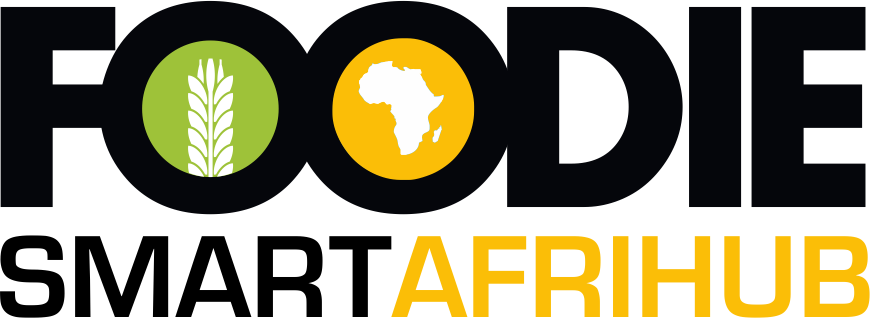 SmartAfriHub (https://www.smartafrihub.com/pt/home) The purpose is to design, develop and introduce a Smart Agriculture Innovative Hub – SMARTAFRIHUB. The platform will be used to connect people to the information. Firstly with integrating principles of social media like Blog, Forum, design Science Shop, which will be able to connect users with developers and researchers. And secondly by integrating different types of demo applications, where farmers, developers and researchers will have chance to cooperate, test different API for new solutions and also provide common experiments.
SmartAfriHub (https://www.smartafrihub.com/pt/home) The purpose is to design, develop and introduce a Smart Agriculture Innovative Hub – SMARTAFRIHUB. The platform will be used to connect people to the information. Firstly with integrating principles of social media like Blog, Forum, design Science Shop, which will be able to connect users with developers and researchers. And secondly by integrating different types of demo applications, where farmers, developers and researchers will have chance to cooperate, test different API for new solutions and also provide common experiments.
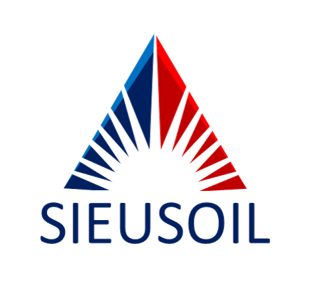 SIEUSOIL https://www.sieusoil.eu/ aims to develop sustainable and holistic soil management practices based on a harmonised land information system suitable for diverse climate and operation conditions along different EU and China locations.
SIEUSOIL https://www.sieusoil.eu/ aims to develop sustainable and holistic soil management practices based on a harmonised land information system suitable for diverse climate and operation conditions along different EU and China locations.
AFarCloud http://www.afarcloud.eu/ – Farming is facing many economic challenges in terms of productivity and cost-effectiveness, as well as an increasing labour shortage partly due to depopulation of rural areas. Reliable detection, accurate identification and proper quantification of pathogens affecting both plant and animal health, must be kept under control to reduce unnecessary costs, trade disruptions and even human health risks.

